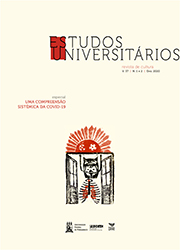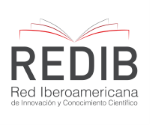Remote teaching or distance education: Effects of the pandemic
DOI:
https://doi.org/10.51359/2675-7354.2020.249044Keywords:
distance education, online teaching, pandemic, emergency remote teachingAbstract
This text discusses the effects of the Covid-19 pandemic on Brazilian education. Firstly, it re-flects on the terms Distance Education, Online Teaching and Emergency Remote Teaching and argues that the names change as a way to combat prejudice against any form of teaching that is not face to face. Then, some effects of the pandemic in Brazilian education are presented with examples from two Brazilian states and some reflection about Brazilian federal univer-sities. In addition, it addresses two discomforts felt by teachers and students when they are in virtual learning environments. Teachers com-plain that students do not open their camer-as and students miss their teachers’ presence in the online environment. Some suggestions are given and the text concludes that educa-tion will never be the same again, that Internet has become a public need and that education policies must change.
References
ARRUDA, E. P. Educação Remota Emergencial: elementos para políticas públicas na educação brasileira em tempos de Covid-19. EmRede, v. 7, n. 1, p. 257-275, 2020. Disponível em: https://www.aunirede.org.br/revista/index.php/emrede/article/view/621. Acesso em: 10 set. 2020.
BACH, S.; HAYNES, P.; SMITH, L. Online learning and teaching in Higher Education. New York: Open University Press/McGraw-Hill Education, 2007.
HOLMBERG, Börje. Theory and practice of distance education. 2nd. ed. London, New York: Routledge, 1995.
BRADFORD, P.; PORCIELLO, M.; BACKUS, D. The blackboard learning system. The Journal of Educational Technology Systems, v. 35, p. 301-314, 2007. Republicado em Internet Archive. Way Back Machine, 2018. Disponível em: http://uupinfo.org/research/working/bradford.pdf. Acesso em: 9 jun. 2020.
BRASIL. Lei de Diretrizes e Bases da Educação Nacional, LDB. 9394/1996. Disponível em: https://www.planalto.gov.br/ccivil_03/leis/l9394.htm. Acesso em: 27 set. 2020.
BRASIL. Decreto 9.057 de 25 de maio de 2017. Regulamenta o art. 80 da Lei no 9.394, de 20 de dezembro de 1996, que estabelece as diretrizes e bases da educação nacional. Disponível em: https://www.planalto.gov.br/ccivil_03/_Ato2015-2018/2017/Decreto/D9057.htm#art24. Acesso em: 27 set. 2020.
BRASIL. Decreto 5.662 de 19 de dezembro de 2005. Regulamenta o art. 80 da Lei no 9.394, de 20 de dezembro de 1996, que estabelece as diretrizes e bases da educação nacional. Disponível em: https://www.planalto.gov.br/ccivil_03/_ato2004-2006/2005/decreto/d5622.htm. Acesso em: 27 set. 2020.
GARRISON, D. R.; ANDERSON, T.; ARCHER, W. Critical inquiry in a text-based environment: computer conferencing in Higher Education. The Internet and Higher Education, v. 2, n. 2, p. 87105, 1999.
HART, R. S. (ed.). The PLATO system and language study. Studies in Language Learning, v. 3, n. 1, 1981.
HODGES, C.; MOORE, S.; LOCKEE, B.; TRUST,T.; BOND, A. The Difference between emergency remote teaching and online learning. Educause Review, 2020. Disponível em: https://er.educause.edu/articles/2020/3/the-difference-
between-emergency-remote-teaching-and-online-learning#fn7. Acesso em: 10 set. 2020.
HOLMBERG, B. Theory and practice of distance education. London: Routledge, 2005.
LEVY, M. Computer-assisted language learning: context and conceptualization. New York: Oxford University Press, 1997.
MASON, Mark, Complexity theory and the Philosophy of Education. Oxford: Wiley-Blackwell, 2008.
MASON, Mark. What is complexity theory and what are its implications for educational change? In: MASON, Mark. Complexity theory and the Philosophy of Education. Oxford: Wiley-Blackwell, 2008. p. 32-45.
MORRISON, K. Educational philosophy and the challenge of complexity theory. In: MASON, Mark. Complexity theory and the Philosophy of Education. Oxford: Wiley-Blackwell, 2008. p. 15-31.
PERNAMBUCO. 2020. Live: Fred Amancio conversa sobre novo cenário da educação básica pós-pandemia. 25 jun. 2020. Disponível em: http://www.educacao.pe.gov.br/portal/?pag=1&cat=37&art=5640. Acesso em: 10 set. 2020.
TOMAZINHO, Paulo. Ensino Remoto Emergencial: a oportunidade da escola criar, experimentar, inovar e se reinventar. 2020.
Disponível em: https://medium.com/@paulotomazinho/ensino-remoto-emergencial-a-oportunidade-da-escola-criar-experimentar-inovar-e-se-reinventar-6667ba55dacc. Acesso em: 10 set. 2020.
TOTI, Michelle Cristine da Silva. Abra sua câmara! Por que esse comportamento é tão difícil para os estudantes? Programa PRODOC: Relações Pedagógicas Professor – Aluno: processos de interação no ERE. 2020. 122 min, son., color. Disponível em: https://www.youtube.com/watch?v=rPYB4lkOIVY. Acesso em: 29 set. 2020.
UNIVERSIDADE FEDERAL DE ALFENAS. Conselho de Ensino e Pesquisa. Resolução nº 04, de 03 de junho de 2020. Regulamenta a oferta opcional de componentes curriculares dos Projetos Pedagógicos dos Cursos de graduação da Universidade Federal de Alfenas (Unifal-MG), por meio de Ensino Remoto Emergencial, em função da pandemia de Covid-19. Alfenas: Conselho de Ensino e Pesquisa a Universidade Federal de Alfenas, 2020. Disponível em: https://www.unifal-mg.edu.br/graduacao/wpcontent/uploads/sites/94/2020/06/Resolu%C3%A7%C3%A3o-04-de-03-de-junho-de-2020.pdf. Acesso em: 29 set. 2020













